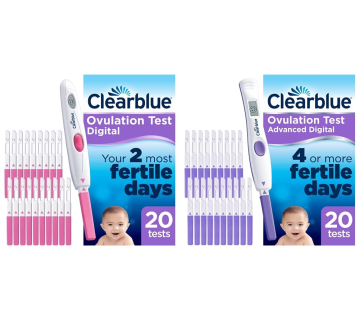How to Improve and Prevent High Sperm Abnormality Rates

Best Abnormal Sperm Morphology Treatments for Fertility
Hey there! If you’re reading this, chances are you or someone you care about is facing challenges with fertility—and maybe you’ve heard the term “abnormal sperm morphology” thrown around. Don’t worry if it sounds confusing at first. We’re going to break it all down together, step by step, in a way that’s easy to understand. Think of this as your go-to guide for figuring out what abnormal sperm morphology means, why it matters for fertility, and—most importantly—what you can do about it.
Sperm morphology is just a fancy way of saying “the shape of sperm.” When sperm don’t look quite right under a microscope, it can sometimes make it harder to conceive. But here’s the good news: there are tons of ways to tackle this issue, from simple lifestyle tweaks to cutting-edge medical treatments. By the end of this article, you’ll have a clear picture of the best options out there, backed by science, and some practical tips you can start using today. Plus, we’ll dive into some fresh ideas and research that you won’t find in most other articles—so stick with me!
What Is Abnormal Sperm Morphology, and Why Should You Care?
Let’s start with the basics. Sperm morphology refers to how sperm look—their size, shape, and structure. Picture a sperm as a tiny tadpole: it’s got a head, a midpiece, and a tail. For a sperm to do its job (aka fertilize an egg), it needs to be shaped just right. The head carries the DNA, the midpiece powers it with energy, and the tail helps it swim. If any of these parts are off—like a misshapen head or a coiled tail—it’s called abnormal sperm morphology.
Now, here’s the kicker: almost every guy has some abnormal sperm. In fact, the World Health Organization (WHO) says that having just 4% of your sperm shaped “normally” is enough to be considered fertile. That means 96% can be wonky, and you might still be okay! But when the percentage of normal sperm dips too low (say, below 4%), it can signal a condition called teratozoospermia, which might make getting pregnant trickier.
Why It Matters for Fertility
Abnormal sperm can struggle to swim properly or break into an egg. Think of it like trying to unlock a door with a bent key—it might work eventually, but it’s not as smooth. Studies show that men with very low normal morphology (like 0-5%) often take longer to conceive naturally. But don’t panic—research also shows that even men with 0% normal sperm can sometimes still father kids without help. So, it’s not a dealbreaker, just a hurdle.
Quick Self-Check: Do You Need to Worry?
Here’s a little interactive moment for you. Answer these quick questions to see if this might apply to you:
- ✔️ Have you and your partner been trying to conceive for over a year without luck?
- ✔️ Has a doctor mentioned “sperm issues” after a semen analysis?
- ✔️ Are you over 35 or dealing with stress, smoking, or unhealthy habits?
If you checked any of these, it might be worth digging deeper with a fertility test. No pressure—just something to think about!
What Causes Abnormal Sperm Morphology?
Before we jump into treatments, let’s figure out why sperm might not be shaping up. The causes are a mix of stuff you can control and some you can’t. Here’s the breakdown:
Lifestyle Culprits
- Smoking and Drinking: Cigarettes and heavy alcohol can mess with sperm production, leading to odd shapes like coiled tails or double heads. One study found smokers had 20% more abnormal sperm than non-smokers.
- Poor Diet: Junk food and low nutrients (like zinc or vitamin C) can throw sperm development off track.
- Heat Exposure: Hot tubs, tight underwear, or even keeping your laptop on your lap too long can overheat your testicles, which messes with sperm shape.
Medical and Genetic Factors
- Varicoceles: These are swollen veins in your scrotum that can heat things up and hurt sperm quality. About 15% of men have them, and they’re a top fixable cause of infertility.
- Infections: Past or present infections (like STIs) can damage sperm-producing cells.
- Genetics: Some guys inherit traits that lead to funky sperm—like globozoospermia (round-headed sperm) or macrocephaly (giant-headed sperm).
Environmental Toxins
- Chemicals: Pesticides, heavy metals, or workplace toxins can sneak into your system and disrupt sperm shape.
- Stress: Chronic stress pumps out cortisol, which can throw off hormone balance and sperm production.
Fun Fact: Sperm Takes Time to Change
Did you know it takes about 2-3 months for your body to make new sperm? That’s why any changes you make today—like quitting smoking—won’t show up in a semen test right away. Patience is key!
How Is Abnormal Sperm Morphology Diagnosed?
If you’re wondering about your sperm, the first step is a semen analysis. It’s a simple test where you provide a sample (yep, in a cup), and a lab checks it out under a microscope. Here’s what they look at:
- Sperm Count: How many sperm are there?
- Motility: How well do they swim?
- Morphology: What percentage look normal?
For morphology, labs often use the Kruger Strict Criteria. If more than 14% of your sperm are normal, you’re in great shape. Between 5-14% is still decent, but below 5% might mean extra help is needed.
What “Normal” Looks Like
A normal sperm has:
- An oval head (not too big or small)
- A straight, single tail
- A midpiece that’s not too thick or thin
Abnormal ones might have two heads, no tail, or a head that’s too round. Labs count at least 200 sperm to get a solid average.
A Hidden Gem: Retest Before You Stress
Here’s something not talked about enough: one bad test doesn’t mean you’re doomed. Sperm quality can bounce around due to stress, illness, or even a wild weekend. Doctors usually recommend 2-3 tests, a few weeks apart, to get the real story. So, if your first result looks rough, don’t sweat it—ask for a retest!
Top Treatments for Abnormal Sperm Morphology
Okay, now the part you’ve been waiting for: what can you do about it? We’ll cover everything from quick fixes to high-tech solutions. Let’s dive in!
H2: Lifestyle Changes You Can Start Today
Your daily habits can make a bigger difference than you might think. Here’s how to boost your sperm shape naturally:
Eat Like a Fertility Champ
- ✔️ Load up on antioxidants: Foods like berries, nuts, and spinach fight off damage to sperm DNA.
- ✔️ Get more zinc: Oysters, pumpkin seeds, and beef support healthy sperm production.
- ❌ Cut the junk: Processed foods and sugar can tank your sperm quality.
Cool Things Down
- ✔️ Swap tight briefs for boxers to keep your testicles from overheating.
- ❌ Skip the hot tubs and saunas for a while—heat is sperm’s enemy.
Kick Bad Habits
- ✔️ Quit smoking: Studies show it cuts abnormal sperm by up to 30% within months.
- ✔️ Limit alcohol: Stick to 1-2 drinks a day max.
Move Your Body
- ✔️ Aim for 30 minutes of exercise most days—think walking, biking, or lifting weights.
- ❌ Don’t overdo it: Too much intense exercise (like marathon training) can stress your system and hurt sperm.
Pro Tip: Try a 90-day challenge! Since sperm takes 2-3 months to renew, track these changes and retest to see your progress.
H2: Supplements That Might Help
Some vitamins and nutrients can give your sperm a shape-up. Here’s what science says:
- Vitamin C: Boosts sperm quality by fighting oxidative stress. Aim for 500-1000 mg daily (or eat an orange a day!).
- CoQ10: This antioxidant powers up sperm energy. Studies suggest 200-400 mg daily can improve morphology.
- Zinc: Low zinc is linked to poor sperm shape. Try 15-30 mg daily with food.
- Omega-3s: Found in fish oil, these fats help sperm membranes stay flexible. Go for 1000 mg daily.
Caution: Talk to a doctor before starting supplements—too much of a good thing can backfire.
H2: Medical Fixes for Bigger Issues
If lifestyle tweaks aren’t enough, don’t worry—there are medical options that can turn things around.
Varicocele Repair
- What It Is: A quick surgery to fix those swollen veins in your scrotum.
- Why It Works: It cools your testicles and boosts sperm quality. One study found 40% of men saw better morphology post-surgery.
- Good to Know: Recovery takes a few weeks, and results show up in 3-6 months.
Hormone Therapy
- What It Is: Meds to balance hormones like testosterone or FSH if they’re off.
- Why It Works: Hormones control sperm production—fixing them can improve shape.
- Heads-Up: This is rare and needs a specialist to diagnose.
Infection Treatment
- What It Is: Antibiotics for any hidden infections messing with your sperm.
- Why It Works: Clearing infections can stop damage and let sperm recover.
H2: Assisted Reproductive Technologies (ART)
When natural conception isn’t happening, these high-tech options can save the day.
Intrauterine Insemination (IUI)
- How It Works: Doctors wash your sperm to pick the best ones, then place them right in the uterus.
- Success Rate: Works best if you’ve got at least 5 million motile sperm—morphology matters less here.
- Cost: Around $500-$1000 per try.
In Vitro Fertilization (IVF) with ICSI
- How It Works: IVF mixes sperm and egg in a lab, and ICSI (intracytoplasmic sperm injection) picks one good sperm and injects it straight into the egg.
- Why It’s Awesome: Even with 0% normal morphology, ICSI can lead to pregnancy. Studies show no big difference in success rates compared to normal sperm.
- Cost: $10,000-$15,000 per cycle, but it’s a game-changer.
Sperm Donation
- How It Works: Use healthy donor sperm if yours just won’t cut it.
- Why Consider It: Guarantees top-notch sperm quality for conception.
Interactive Poll: Which treatment sounds most appealing to you?
- A) Lifestyle changes
- B) Supplements
- C) Medical fixes
- D) High-tech ART Let me know in your head—and maybe chat with your partner about it!
3 Fresh Angles You Won’t Find Everywhere
Most articles stick to the basics, but let’s go deeper with some unique insights based on the latest research and real-world gaps.
H3: The Stress-Sperm Connection
Stress isn’t just in your head—it’s in your sperm too! A 2023 study found that men with high cortisol (stress hormone) levels had 15% more abnormal sperm than relaxed guys. Why? Stress messes with testosterone and sperm production.
Action Step: Try 10 minutes of deep breathing or meditation daily. Apps like Calm or Headspace can guide you—it’s free to start, and it might just reshape your sperm!
H3: The Microbiome Link
Here’s something wild: your gut health might affect your sperm. New research suggests that a balanced gut microbiome (the bacteria in your belly) supports hormone levels and reduces inflammation, which can improve sperm morphology. One small study saw a 10% morphology boost in men who took probiotics for 3 months.
Try This: Add yogurt, kefir, or a probiotic supplement (like 10 billion CFUs daily) to your routine. It’s a cheap, easy experiment!
H3: Sperm Selection Tech
Ever heard of sperm sorting? New lab techniques use magnets or lasers to pick out the healthiest sperm—even if they look weird. A 2024 trial showed a 20% higher fertilization rate with this method during IVF. It’s not everywhere yet, but ask your clinic if they’re testing it—it could be a secret weapon!
Busting Myths About Abnormal Sperm Morphology
There’s a lot of confusion out there, so let’s clear up some big myths:
- Myth #1: “Abnormal sperm means my kid will have defects.”
Truth: Nope! Shape doesn’t equal bad DNA. Studies show no higher risk of birth defects with abnormal morphology, even in IVF babies. - Myth #2: “If my morphology is low, I’m infertile.”
Truth: Not necessarily. Men with 0% normal sperm have conceived naturally—it’s about the whole picture (count, motility, etc.). - Myth #3: “There’s nothing I can do about it.”
Truth: Wrong! From diet to surgery, tons of options can improve your odds.
Your Step-by-Step Action Plan
Ready to take charge? Here’s a simple roadmap to get started:
- Get Tested: Schedule a semen analysis with a fertility clinic (not just any lab—they’re more accurate).
- Assess Your Lifestyle: Write down your habits—smoking, diet, exercise—and pick 2-3 to improve.
- Talk to a Doc: See a urologist or fertility specialist to rule out varicoceles or infections.
- Try for 90 Days: Make changes and retest after 3 months to see progress.
- Explore ART: If needed, chat with your partner about IUI or IVF options.
Bonus Checklist: Track your progress!
- ✔️ Ate 5 servings of fruits/veggies today
- ✔️ Skipped the beer
- ✔️ Took a 20-minute walk
- ❌ Sat in a hot tub
Real Stories: What Worked for Others
Sometimes, hearing from real people helps. Here are two quick examples (names changed):
- Mike, 34: “My morphology was 3%. I quit smoking, started eating walnuts daily, and after 4 months, it jumped to 8%. We conceived naturally!”
- Sara & Tom, 29: “Tom had 1% normal sperm. We went straight to IVF with ICSI—first try worked. Our daughter’s 2 now!”
These aren’t guarantees, but they show what’s possible with the right moves.
The Future of Sperm Morphology Treatments
What’s next? Science is moving fast. Researchers are testing:
- Gene Editing: Fixing genetic sperm defects before conception.
- AI Sperm Selection: Machines that spot the best sperm for IVF with crazy accuracy.
- Natural Boosters: Plant-based compounds (like ashwagandha) showing promise in early trials for morphology.
Keep an eye out—these could be game-changers in the next 5-10 years!
Wrapping It Up: You’ve Got This!
Abnormal sperm morphology might sound scary, but it’s just one piece of the fertility puzzle. Whether you’re tweaking your diet, popping a supplement, or going high-tech with IVF, there’s a path forward. The key? Start small, stay consistent, and don’t be afraid to ask for help. You’re not alone in this—millions of guys face the same thing and still build families.
So, what’s your next step? Maybe it’s booking that test or swapping soda for water. Whatever it is, you’re already on your way. Got questions? Drop them in your mind (or chat with a doc)—I’m rooting for you!


